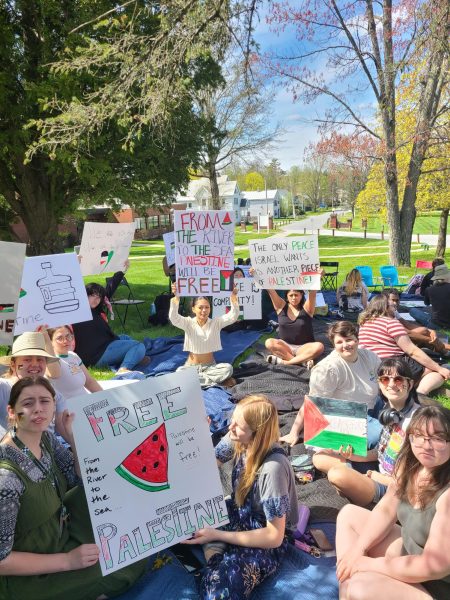It’s time for America to acknowledge rape culture
You’d be hard-pressed to find anyone who hasn’t heard of the recent Brock Turner case. Just in case, by some chance, you have no idea who Brock Turner is, here’s the run-down: He sexually assaulted an unconscious girl behind a dumpster back in January 2015. He went to trial and was convicted of three felony counts of sexual assault in March of this year.
Given that the standard sentences for rape in California are three, six, or eight years in jail based on various circumstances, and that the prosecutors were asking for six years, one would expect a reasonable prison sentence for such a crime.
Well, think again. Judge Aaron Persky sentenced Turner to six months in county jail.
The reasoning for this was that, in the state of California, Brock Turner did not technically commit “rape.”
Federally, rape is defined as the penetration of the anus or vagina with any body part or object, or oral sex, without consent. In the state of California, rape is defined specifically as sexual intercourse without consent. Other non-consensual sexual acts are defined as sexual assault.
Since Brock Turner penetrated his victim with his fingers and not his penis, he was not charged with rape. He was, however, charged with sexual assault with intent to commit rape of an intoxicated or unconscious person, and penetrating a both unconscious and intoxicated person with a foreign object (which counts as two felonies).
Even though California, among other states, is a little behind the times on rape laws, Turner’s sentence was exceedingly lenient for the crimes he committed. California state law allows for up to one year in county jail for felony sexual assault, and can be two to four years in state prison.
Not only that, but Turner was released for “good behavior” after serving only three months. He will now serve three years of probation and has recently registered as a sex offender, which he must continue to do for life.
Not only was Turner’s meager jail sentence infuriating, but it also both calls into question the integrity of our legal system and calls out an urgent societal issue: the epidemic of rape on college campuses nationwide.
Does the name “Missoula” ring a bell? It should, because the University of Montana in Missoula, Mont., has been deemed the “rape capital” of the United States. Although this is not nearly an accurate title, 350 sexual crimes were investigated in Missoula between 2008 and 2012, and the town has received recent recognition from John Krakauer in his book “Missoula: Rape and the Justice System in a College Town,” which details several sexual assault cases from the area.
Although Turner’s case is an important one, it is also somewhat unlikely; NSVRC research says that nine in ten victims knew their attacker.
The first case, and possibly one of the most famous, we are introduced to in “Missoula” is that of Allison Huguet and Beau Donaldson. Huguet and Donaldson had been childhood friends until he raped her while she was asleep at a college party.
While being assaulted by a stranger is obviously not unheard of, “acquaintance rape,” date rape, and even rape by someone you know well are more common.
If most victims know their attacker, doesn’t that call into question what society, and perhaps even parents, are teaching about respect, consent and relationships?
Of course, rape happens in all age groups, but none reach the proportions that we are seeing nationwide on college campuses. College students are still navigating life and figuring everything out, and, with all of the dating, partying, and alcohol and drug use, it is crucial to be educated about consent and boundaries.
According to the National Sexual Violence Research Center (NSVRC), between one in four and one in five women will be a victim of attempted or completed rape over the course of their college careers.
It’s ridiculous that the word “rape” is considered so taboo, and yet rape itself is so pervasive in our culture. Like it or not, we are currently living in a rape culture.
Rape culture is when ten-year-old girls aren’t allowed to show their shoulders or legs in school because it might “distract” the boys. Similarly, a victim of rape is blamed for what she was wearing, as if the rapist isn’t responsible for controlling his sexual urges.
Rape culture is when victims are asked by police if they have a boyfriend, because maybe they cheated and are trying to cover it up with a rape accusation.
Rape culture is when former congressman Todd Akin publicly says that women’s bodies have ways to prevent pregnancy if the rape was “legitimate.”
Rape culture is when Brock Turner’s father writes a letter to the judge blaming alcohol for his son’s crime, saying that the situation “could have been avoided if all parties behaved responsibly,” and painting his son as the real victim.
We desperately need to talk about rape. We need to stop the spread of misinformation.
We need to talk about the fact that rape is never the victim’s fault. We need to talk about the fact that men are also raped, sometimes by women. Because, of course, men are supposed to be strong and capable, and women are weak and vulnerable. If society admits men can be raped, perhaps it wouldn’t be so easy to blame the victim.
We can’t begin addressing these problems unless we talk about them, and we can’t talk about them if we deny they exist, dismiss the claims of victims and refuse to accept that rape can happen to anyone, regardless of gender, race, orientation, or clothing choices.
Openly discussing rape can be uncomfortable, but it goes hand-in-hand with openly educating our youth about sex. Our culture is more open about sex than ever (regardless of some sub-par sexual education that we have in our country). As a result, teen pregnancy rates in the United States are at a record low; it dropped nine percent between 2013 and 2014, according to the CDC. I am confident that the rates of sexual crimes would do the same if these issues were discussed freely.
Once we begin talking about rape and educating young people about consent and respect, we can fully address sexual crimes, and perhaps even begin to give offenders the charges and prison time they deserve.



